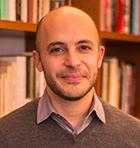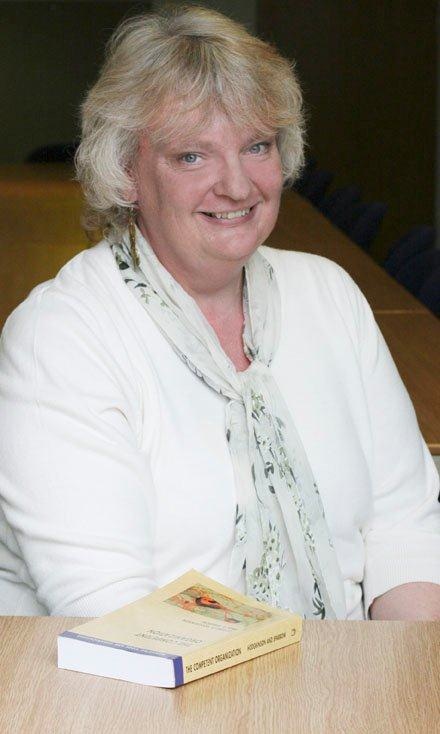
Michel Anteby
Associate Professor of Business Administration
Harvard Business School, USA
Michel Anteby research looks at how individuals relate to their work, their occupations, and the organizations they belong to. He examines
more specifically the practices people engage in at work that help them sustain their chosen cultures or identities. In doing
so, his research contributes to a better understanding of how these cultures and identities come to be and manifest themselves.
His latest book, “Manufacturing Morals: The Values of Silence in Business School Education”, is an auto-ethnographic study
of the Harvard Business School and explores the power and limits of silence as a socialization mechanism.
Ann Cunliffe
50th Anniversary Chair and Professor of Organization Studies
University of Bradford, UK
Having previously held positions at the University of Leeds, UK, the University of New Mexico and California State University, USA. She also holds Visiting Professor positions at Escola de Administraçâo da Fundaçâo Getulio Vargas, Brazil, and the University of Strathclyde, UK.
Her current research interests examine ethical leadership, embodied sensemaking, non-traditional qualitative research, and reflexive approaches to research, practice and learning. Recent publications include “A Very Short, Fairly Interesting and Reasonably Cheap Book about Management” (2014) and articles in Organizational Research Methods, Human Relations, The Journal of Business Ethics. She is Co Editor-in-Chief of Management Learning, and organizes the biennial Qualitative Research in Management and Organization Conference In New Mexico, USA.
Martha Feldman
Johnson Chair for Civic Governance and Public Management
Professor of Social Ecology, Political Science, Business and Sociology, University of California, Irvine, USA
Martha Feldman has written 4 books and dozens of articles on the topics of organization theory, public management and qualitative research
methods. Her current research on organizational routines explores the role of performance and agency in creating, maintaining
and altering these fundamental organizational phenomena. She is a Senior Editor for Organization Science and also serves on
the editorial boards of the Academy of Management Journal, Academy of Management Discoveries, International Public Management
Journal, Journal of Management Studies, Organization Studies, Public Administration Review and Qualitative Research in Organizations
and Management. She received the Administrative Science Quarterly's 2009 award for Scholarly Contribution, the 2011 Academy
of Management Practice Scholarship Award and in 2014, she received an honorary doctorate in economics from St. Gallen University
Business School and was listed by Thomson Reuters as a highly cited author.
Dvora Yanow
Professor of Organizational Studies Keele University, UK
&Guest Professor, Communication, Philosophy, & Technology Wageningen University, Netherlands
Dvora Yanow’s research and teaching explore the generation and communication of knowing and meaning in organizational and policy settings.
Present research includes practice studies, research regulation (ethics committee) policies, state-created categories for
race-ethnic identity, immigrant integration policies and citizen-making practices, and science/technology museum spaces and
the idea of science. Her most recent book, “Interpretive Research Design: Concepts and Processes”, written with Peregrine
Schwartz-Shea, is the first volume in their co-edited Routledge Series on Interpretive Methods; their co-edited “Interpretation
and Method: Empirical Research Methods and the Interpretive Turn” recently appeared in a second edition.

Chair :
Caroline Ramsey
Senior Lecturer in Management, University of Liverpool Management School, UK
Caroline Ramsey’s research publications to date have centred on a practice based, processual approach to learning, particularly learning in the workplace. She is currently working on a relational approach to leadership centring the creation of leadership within conversation.
Abstracts
What is this thing called reflexivity? And how can we practice 'it' if we're not sure what the 'it' is? Indeed, is there even one, identifiable 'it' available to know and practice? In this sub-plenary four scholars play with different ideas of reflexivity and in their playfulness seek to dig deep into the possibilities, disciplines and opportunities for practicing reflexivity as a creative process. Martha Feldman asks if it's OK to do research I care about, for if I care about a topic, might I not just find what I want to see? Distinguishing between methodological reflexivity and reflective practice, Dvora Yanow mischievously considers whether reflexivity in methods might be the new validity. Michel Anteby explores and, maybe, celebrates research that is irrelevant, idiosyncratic but interesting, before Ann Cunliffe broadens out the question of reflexive practice to include practitioners as well as researchers. The session will be a round table conversation, with participants helping each other explore their topics: stretching their questions, offering challenges to premises and encouraging boldness in a creative and practice-able reflexivity.
